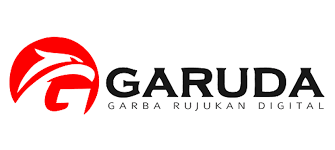KAJIAN POTENSI PEMANFAATAN BIOMASSA LIMBAH PERTANIAN UNTUK MEWUJUDKAN EKONOMI BERKELANJUTAN
Keywords:
Economic Innovation, Sustainable, Waste Utilization, Agriculture, Renewable EnergyAbstract
The purpose of this research is to find out the extent of the application of Sustainable Economic Innovation through the Utilization of Agricultural Waste as Renewable Energy. This research method is qualitative with descriptive analysis All data used in this study are sourced from books, encyclopedias, journals, magazines, newspapers, and other literature materials because it is a literature review. The results of this study are that the potential of agricultural waste in Indonesia as a source of renewable energy is really extraordinary. With the right technology management, policy support, and stakeholder synergy, this potential can be transformed into clean energy, reduce emissions, strengthen the village economy, and increase national energy security.
Downloads
References
Akromusyuhada, A. (2020). PELITA TEKNOLOGI Penataan Daerah Pusat Kegiatan Bisnis/ Central Business District (CBD) Bombana, Sulawesi Tenggara. Jurnal Pelita Teknologi, 15(2), 106–116.
Al-Amin, A.-A., & Andespa, W. (2022). Income and Cost Analysis of Profitability in the Baitul Maal Wa Tamwil Sidogiri Savings and Loans Cooperative, Mempawah Branch. JOVISHE: Journal of Visionary Sharia Economy, 1(1), 75–87.
Amin, A.-A., & Taufiq, M. M. (2023). Analisis Pengaruh Hifdz Al Maal Terhadap Pengelolaan Harta Pada Pedagang Muslim Pasar Aur Kuning Kota Bukittinggi. JESI (Jurnal Ekonomi Syariah Indonesia), 12(2), 163–169.
Amin, A., Putra, R., Subeno, H., Bashir, H., Andespa, W., & Ridwan, A. (2023). Penerapan dan Urgensi Model Model Cash Waqaf (Studi pada Hasil Jurnal Penelitian di Indonesia). Journal on Education, 5(2), 3095–3107.
Asj’ari, F., & D, I. M. B. (2018). Green Economy dalam mendukung Millennium Development Goals (MDGs). Budaya Bisnis Berbasis Ekonomi Hijau Di Era Industri 4.0, 17(1), 1–14.
Ausop, A. Z., & Aulia, E. S. N. (2018). Teknologi Cryptocurrency Bitcoin Untuk Investasi Dan Transaksi Bisnis Menurut Syariat Islam. Jurnal Sosioteknologi, 17(1), 74–92. https://doi.org/10.5614/sostek.itbj.2018.17.1.8
Djadjuli, R. D. (2018). Peran Pemerintah Dalam Pembangunan Ekonomi Daerah. Jurnal Dinamika: Jurnal Ilmiah Ilmu Administrasi Negara, Vol5(2), hal. 10. https://jurnal.unigal.ac.id/index.php/dinamika/article/view/1409
Hamidah, C. (2016). Investasi Properti Sebagai Pilihan Keluarga Tenaga Kerja Indonesia (TKI) Di Kecamatan Babadan Kabupaten Ponorogo. Rosiding Seminar Nasional Hasil-Hasil Penelitian 2016 : Bidang Agama Islam, Budaya, Ekonomi, Sosial Humaniora, Teknologi, Kesehatan, Dan Pendidikan, 99–104.
Hasan, M. I. (2000). Pokok-pokok Materi Metodelogi penelitian dan Aplikasinya. Ehawa Indonesia.
Kusuma, N. R., Hamidah, I., & Fitriani, N. (2022). Pengelolaan Sumber Daya Alam Berbasis Ekonomi Hijau Dalam Perspektif Syariah Untuk Mendukung Pembangunan Berkelanjutan. Konferensi Nasional Studi Islam, July, 142–153.
Mahri, J. W., Nur, C. M., Al, R., Arundina, T., Widiastuti, T., Mubarok, F., Fajri, M., & Nurasyiah, A. (2021). Ekonomi pembangunan islam. depertemen keuangan syariah bank indonesia.
Maulida, S., & Yunani, A. (2017). Peluang dan Tantangan Pengembangan Usaha Mikro Kecil Menengah (UMKM) Dari Berbagai Aspek Ekonomi. Jurnal Ilmiah Manajemen Dan Bisnis, 2(1), 181–197.
Mulyani, M. (2021). Analisis Harga Tandan Buah Segar Kelapa Sawit di Provinsi Jambi. Jurnal Ekonomi Pertanian Dan Agribisnis, 5(2), 315–322. https://doi.org/10.21776/ub.jepa.2021.005.02.04
Riset, P., Inovasi, D. A. N., & Masyarakat, P. (2022). DESA PETANANG SERTA FUNGSI MEDIA APLIKASI PROMOSI DIGITAL PROGRAM KKN TEMATIK MBKM MAHASISWA. 1(4), 141–152.
Smaoui, H. (2020). Sukuk market development and Islamic banks’ capital ratios. Research in International Business and Finance, 51. https://doi.org/10.1016/j.ribaf.2019.101064









